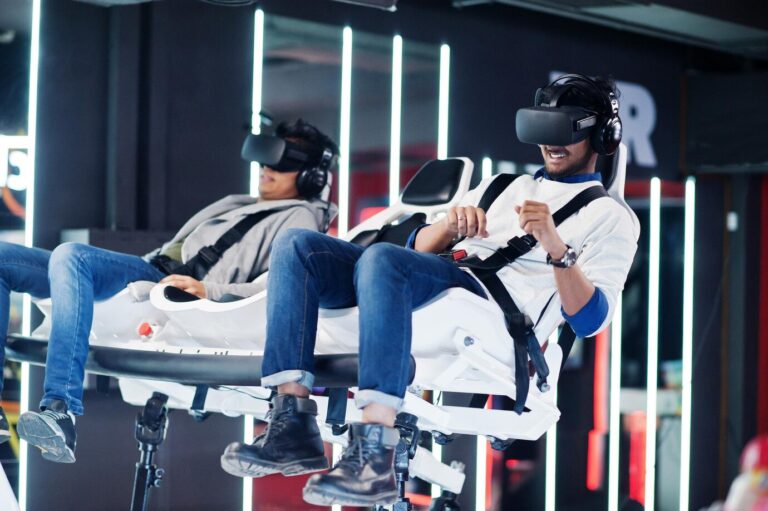Over the years, the gaming business has undergone a remarkable evolution, with technology having a major influence on the creation of realistic and engaging experiences. Simulation in gaming is one such technological development that has completely changed the gaming industry. Virtual reality (VR) games and flight simulators are only two examples of how simulation has changed gaming and opened up new entertainment avenues.
The Evolution of Simulation in Gaming
From Basic Graphics to Lifelike Environments
Avatars and actual events have been produced by simulation in gaming. Simple graphics gave way to games with a real-world theme. Virtual worlds with exceptional visual appeal and intricate details may now be created by developers thanks to developments in graphics processing, physics engines, and rendering techniques. It is now possible for players to interact with lifelike individuals, explore well crafted locations, and become lost in gorgeous settings.
Realistic Physics and Mechanics
With realistic physics and mechanics, simulation in gaming has raised the bar for realism in gaming. Players can feel authentic and fully immersed in everything from convincing ball physics in sports simulations to realistic car handling in racing games. The accurate modeling of real-world dynamics made possible by simulation increases the difficulty and engagement of the gaming.
Flight Simulators and Beyond
For a considerable amount of time, flight simulators have been at the forefront of simulation in gaming, offering fans and aspiring pilots a realistic flying experience. These simulators replicate many elements of flight, including as weather, navigation systems, and aircraft controls. In addition to aviation simulation, there are already simulators available for a wide range of professions and hobbies, including driving, farming, surgery, and even space exploration.
The Role of Simulation in Gaming in Transforming World
Immersive Virtual Reality (VR) Experiences
Because it offers unmatched presence and immersion, virtual reality has grabbed the gaming world by storm. Gamers can enter virtual environments and engage with them through natural movements by integrating motion tracking, VR headsets, and simulation technology. With VR simulation in gaming, users can explore ancient civilizations, survive a zombie apocalypse, or take part in exhilarating sporting events—all of which take place in whole different worlds.
Training and Skill Development
Training and skill development are two areas where simulation has found extensive use, aside from entertainment. Fields like emergency services, aviation, the military, and medical frequently employ simulation-based training programs. Practice and improvement of complicated activities, decision-making abilities, and critical thinking can be achieved in a safe and controlled setting through simulation in gaming. Without taking on real-world dangers, they provide an economical and effective means of skill enhancement.
Enhanced Realism in Sports and Racing Games
Simulation in gaming has significantly changed the way that sports and racing games are played. Create realistic player movements, accurate ball physics, and dynamic weather conditions with the help of developers using cutting-edge physics engines and motion-capture technology. A level of realism until unthinkable is made possible by these simulations, which let users feel the excitement and difficulties of actual sporting events or races on real tracks.
Architectural and Urban Planning Simulations
Applications of simulation can also be found in urban and architectural planning. Using simulation technologies, architects and urban planners can visualize and assess building plans, urban layouts, and environmental aspects. Professionals can evaluate how different elements, such sunlight, wind patterns, and traffic flow, will affect the final design thanks to these simulations. Better decision-making, cost optimization, and the construction of more sustainable and effective cities and infrastructure are all made possible by it.
Social Interaction and Collaboration
In gaming communities, simulation has created new opportunities for interpersonal communication and teamwork. Players can cooperate, form teams, or compete against one another in multiplayer simulations. These role-playing exercises improve communication, cooperation, and social skills.
The Future of Simulation in Gaming
Advancements in Artificial Intelligence (AI)
The development of AI will have a significant impact on game simulation in the future. AI-driven simulation in gaming have the potential to provide virtual environments that are more lively and responsive, featuring sophisticated behaviors and thoughtful decision-making from non-player characters (NPCs). This creates opportunities for more difficult and realistic gameplay, as NPCs respond to player choices and offer distinctive experiences.

